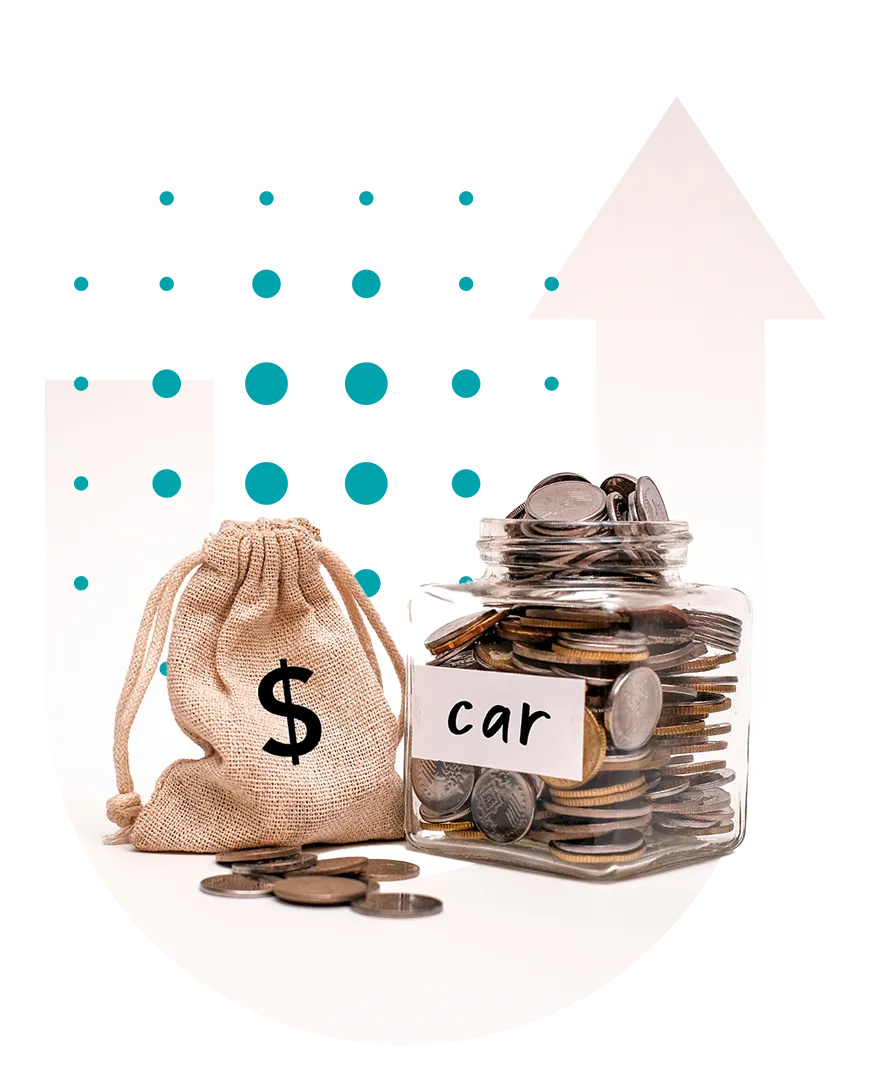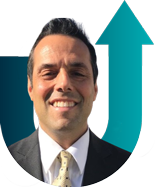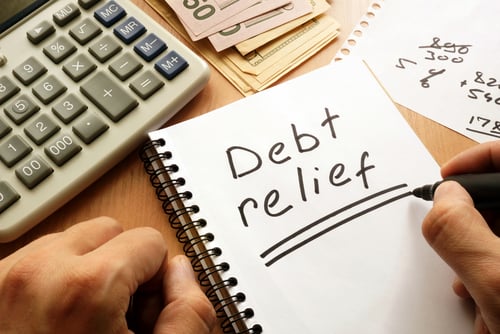6 Common Financial Mistakes to Avoid
Personal finance is one of those areas in which our habits become critical determinants of our outcomes. Similar to fitness, professional development and relationships, the proper foundation imbued with steady positive habits performed over the long-term can lead to successful results that contribute toward a better life.
But it’s not just proper habits that matter with personal finance – it’s also the avoidance of making common financial mistakes. Sure, everybody slips up once in awhile – but if you find yourself repeatedly flirting with the six mistakes discussed in the following article, it may be time to proactively overhaul your mindset and approach when it comes to your own personal financial matters. Let’s take a closer look.

No Budget
If you’re flying through life without a budget in place, you’re not alone – in fact, you are actually making one of the most common financial mistakes of all – but you’re doing it each and every day.
Designing and adhering to a clearly written monthly budget isn’t supposed to be sexy or fun, but that’s not the point. A clear, realistic budget that lists all monthly expenses along with all sources of cash flow works wonders in helping you to understand and remember where all of your money is going as you move through the month.
If you’re not sure of where to begin, the 50/30/20 budget is a good place to start. The 50/30/20 budget allocates 50% of your monthly after-tax income to necessary expenses (housing, food, transportation, utilities, etc.), 30% to “wants” (restaurant meals, entertainment, vacations) and 20% to savings and debt repayment.
This budgetary outline helps guard against frivolous spending and unnecessary impulse purchases while also ensuring a consistent allocation toward debt repayment and savings.
Importantly, in those months when necessary expenses exceed 50% of disposable income, the shortfall hit falls on the “wants” category; the savings and debt repayment category is always allocated its 20%. If you need help designing a budget, consult additional articles on this website – the financial peace of mind that can result is more than worth the time and effort.
ABC
Too Much Credit Card Debt
If you’re carrying too much credit card debt and allowing balances to rollover from month-to-month, you’re making the mistake of accumulating interest expense each and every month.
Since credit card interest rates frequently hover at 14.9% or higher, if you’re at or above the average for balance carrying households (41.2% of American households) of $9,333 as of November 2019 you are throwing away over $1,000 annually on credit card interest.
While credit cards aren’t inherently bad – they can prove quite useful for establishing a track record of timely repayment and building a strong credit score and profile – it is always important to pay credit card debt quickly if we are to attain long-term financial goals of saving and investing for the future.
If you are currently struggling with an onerous pile of credit card debt, there are numerous articles on this website related to debt relief options that include debt settlement, debt management plans and debt consolidation loans.
You can also contact us here at United Settlement and one of our experienced debt relief professionals will speak with you about the various debt relief options that would make the most sense for you given your specific financial situation.
Living Paycheck to Paycheck
A 2017 CareerBuilder survey revealed some startling realities about the percentage of the labor force that lives paycheck to paycheck. Simply put, the majority of U.S. workers – 78% – live from paycheck to paycheck in some form or another!
There are several reasons why living in this way is a financial mistake. Apart from it being stressful, living paycheck to paycheck is a form of short-term thinking that neglects the practice of saving and investing for the future. One way to improve upon the situation is to transfer – however small – a regular amount each week or month into a savings account.
Even if the amounts set aside only gradually accumulate into some sort of emergency fund, scraping aside a little money consistently will curtail the impulse to spend everything as it comes in and get you thinking a bit more long-term.


Not Having an Emergency Fund
Having an emergency fund matters, and it is important to set aside a minimum of three months (ideally more) worth of expenses in the event of a sudden job loss, illness, or costly auto/home repairs.
If you currently lack an emergency fund and don’t start working toward accumulating one, that would represent a fourth common financial mistake. Therefore, if you don’t have an emergency fund today, get about the business of saving enough each month to build one.
If the prospect of saving each month to accumulate an emergency fund seems difficult or impossible given your current cash flow and expenses, then it could be time to look into picking up some part-time work to supplement your income.
Not Saving for Retirement
For many, retirement may seem a long time away, but it is a common financial mistake to not start saving for retirement early. Similarly, when financial pressures hit, it is a common financial mistake for individuals to make early withdrawals from retirement accounts that deplete funds while incurring taxes and early withdrawal fees.
In both instances, future security is compromised at the expense of the present, and opportunities to earn compound interest within a retirement account are short-circuited. It is important to get your money working for you and your future self – because without setting aside money for retirement savings, you could be inadvertently laying the groundwork for an indefinite future of working.
Better to begin or resume saving and investing now if you haven’t been, and best to diversify your holdings so as to minimize risk over time.


Excessive Spending
Finally, spending carelessly is an all too common financial mistake. Having a budget in place can help keep this in check – but even this might not be enough. It’s also important to examine your spending beliefs and habits.
Is your identity tied to spending on name-brands, designer labels, and high-priced gadgets that you may not really need? Or maybe your spending habits include regular high-priced coffee shop visits, an unnecessary cable bill or gym membership, excessive restaurant visits, or ridiculously unsavory recurring bank fees and high-interest rate credit card interest expense.
Regardless, none of these are any good for your financial health and each represents an example of the common financial mistake of frivolous spending. The impulsive purchase of a new car can also fall under this heading – if you can’t afford to pay for the car in full, in cash, you probably shouldn’t be buying it.
In other words, taking on additional debt for the purchase of a new car, which immediately depreciates in value as soon as someone drives it off the lot, is a common financial mistake.
Even a high-quality used car can represent a major purchase – but with proper research and planning, the appropriate used car can be purchased with more manageable financing.
Are you in debt? we can help

About The Author: Steven Brachman
Steven Brachman is the lead content provider for UnitedSettlement.com. A graduate of the University of Michigan with a B.A. in Economics, Steven spent several years as a registered representative in the securities industry before moving on to equity research and trading. He is also an experienced test-prep professional and admissions consultant to aspiring graduate business school students. In his spare time, Steven enjoys writing, reading, travel, music and fantasy sports.
Get Debt Relief
Speak with licensed debt specialists dedicated to guiding you toward financial stability every step of the way.

Ready To Get Started?
See if you qualify for debt relief. Get a Free savings estimate to see how quickly you can be debt free.
Embrace financial freedom with our tailored solutions, expert guidance, and unwavering commitment to your success.
Experienced Professionals
Our experienced team has helped thousands of clients successfully eliminate debt and regain financial freedom.
Customized Solutions
We know every financial situation is different, so we design personalized debt relief plans to fit your specific needs and goals.
High Success Rate
Our proven debt relief strategies deliver real results. With a strong track record of success, we help clients achieve lasting financial stability.
Confidential Consultation
Your privacy is our priority. All debt relief consultations are 100% confidential and handled with the highest level of discretion.
Explore other blogs











